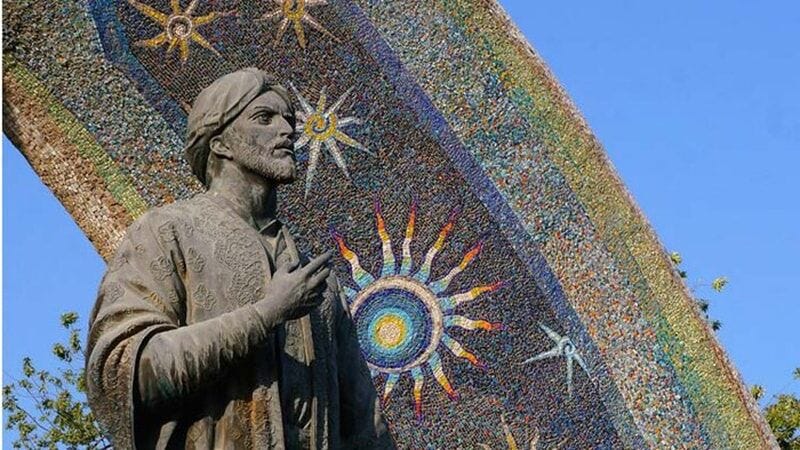The Father of Persian Poetry
A poem on life and loss from Rudaki (plus my first podcast appearance!)
I have some exciting news to share, my friends: your boy was invited onto a podcast for the first time! I was really grateful to be invited onto the Abbasid History Podcast to speak about Rudaki, the father of Persian poetry. As it was my first time on a podcast, I was a bit nervous and jittery. But the tentative plan is to record a 10 or 12 part series on the great Persian poets, so there’s plenty of time to improve :)
If you want to learn more about Rudaki or Persian poetry, or want to support me, then please give it a listen. It’s only 28 mins long, so perfect for a drive to work:
I would also recommend subscribing to the Abbasid History Podcast. You can find them on all major streaming/podcast platforms. I was a fan of the podcast for years before I was invited, so I can honestly say their content is awesome for anyone interesting in learning more about the history of Islamic civilization.
And now, back to our dear father of Persian poetry.
If you were to ask somebody if they knew any Persian poets, most people would be able to mention one, at least. Some would say Rumi (mostly thanks to dodgy translations). Others might say Hafez (mostly thanks to even dodgier translations). But few would mention the first great Persian poet, Rudaki. So I saved you the time of having to look him up and will share here one of his most famous poems.
Rudaki was a poet (and skilled musician) at the court of the Samanids in modern day Uzbekistan, enjoying their patronage for decades. Rudaki lived a lavish and opulent lifestyle, but eventually fell out of favour with his patrons. Blind and banished, he lived out the end of his life in destitution, dying in poverty in his hometown. He composed the following poem in this final period of his life, wherein he rues his destiny. In it is a lesson for us all on the transience of wealth and material possessions, and the ways in which fate can flip. The translation is courtesy of Sassan Tabatabai:
Costly was the wine and each lovely face, But they were always inexpensive for me, For my heart was a treasury of riches, Of words we call Love and Poetry. I was happy, my soul was a meadow Filled with joy, never having known sorrow. My songs served to soften many a soul That before was hard and heavy as stone. My eyes watched for sweet, delicate curls, My ears listened to the words of the wise. No wife, no child, and no expenses, I was weighed down by none of these burdens. My sweet, you’ve seen only Rudaki of late, You never saw him in his greater state, Never saw him when he used to tell tales And sang songs that rivaled the nightingales’. He’s no longer the friend of nobles. The days Are past when he was favored by princes. At the king’s court, his volumes of verse Were held in high esteem, when he held sway. Gone are the days when everyone knew his lines And he was the poet of Khorāsān. Life was good then. Those were the days. When my words fell on the Amir’s ears, He gave generously, as did the others. But times have changed, so have I. Bring me my staff. It’s time for the cane and the beggar’s purse.






Congrats! Can't wait to listen to make the treadmill less painful
Sounds really interesting, great to see amazing Persian poets talked about! Would you be able to provide the translated poem in Farsi by any chance?